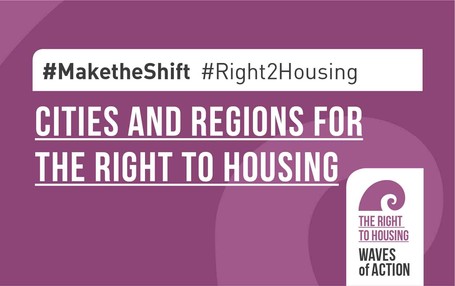
By Paula Marques and Laia Ortiz, Brad Lander
Housing councilors from New York, Barcelona and Lisbon demand a greater commitment from national governments to tackle speculation
Cities are our common home, the place where we share our dreams and worries, where our differences are on display, but also where our solidarity is born. Cities are where we live and they’re where the right to housing, one of the most basic but most underprotected rights, is most at threat.
In recent years, urban housing, particularly in dynamic, global cities like ours, has become an object of speculative investment. This phenomenon is putting our cities under growing pressure from large investment funds.
The very success and attractiveness of our cities are becoming a threat to the people who live in them. There are already neighborhoods in our cities where there are more tourist apartments than residential ones. New York, Barcelona and Lisbon all face the problem of investment funds buying up whole buildings to convert them into tourist accommodation, as well as the proliferation of short-term rental platforms like Airbnb. The fact that increasing numbers of residential buildings in city centres are being rented as tourist accommodation is causing rents to rise. This gentrification process is pushing tenants on lower incomes (often immigrants or minorities) out of their neighborhoods, destroying communities built over decades.
Residential exclusion, in its diverse forms, is increasing: families are being displaced to the city outskirts, housing conditions are worsening, and homelessness is on the rise. Research shows that exorbitant rents and housing insecurity increase the risk of poverty and social exclusion.
We must put people before profit. We must take steps to guarantee the right to the city and the right to housing. That’s what cities are doing. This summer we met at the Fearless Cities Summit in Barcelona to debate strategies such as public housing, rent subsidies, building rehabilitation and new forms of social housing, such as long term leases. We’re also working to develop creative solutions for homelessness that provide access to decent housing rather than temporary emergency accommodation.
However, there are two areas in which our cities need greater powers. The first is the ability to establish rent indexes and controls. New York, Paris and Berlin already have such indexes but we need greater regulatory capacity and resources to enable tenants to organize against speculation, harassment and gentrification.
We also need to be able to regulate tourism and prevent the overexploitation of the sector so that our cities remain attractive and affordable for local residents. We don’t demand anything out of the ordinary from large tourism operators and rental platforms, just that they obey the law. We need to put an end to illegal holiday apartments and, as well know, we’re determined to do so to defend the common good.
We three cities have written this article because we face the same challenges and hopes. We all participated in the Habitat III conference where a New Urban Agenda was adopted that called for the right to decent housing for all. Paradoxically, this agenda was adopted by national governments, rather than cities. That’s why we’re calling on them to either show a greater commitment to dealing with the challenges we face, or to give us the power to do so ourselves. The right to housing, and its social function, must be guaranteed in cities and beyond them.
But we cities are not alone, we have one another, each with its unique circumstances. In deep solidarity we call for our role to be recognized with greater legal powers to defend our citizens.
Our cities are not a commodity. They’re a diverse community of people who want to live and prosper together. We want our cities to be places where everyone can live with dignity. Places where the right to the city and the right to housing are guaranteed.
Brad Lander is New York City Councilor responsible for affordable housing; Paula Marques is Councilor for Housing of the City of Lisbon and Laia Ortiz is Deputy Mayor for Social Rights of the City of Barcelona.
Source: El País: Por el derecho a la vivienda: poder local, política global










